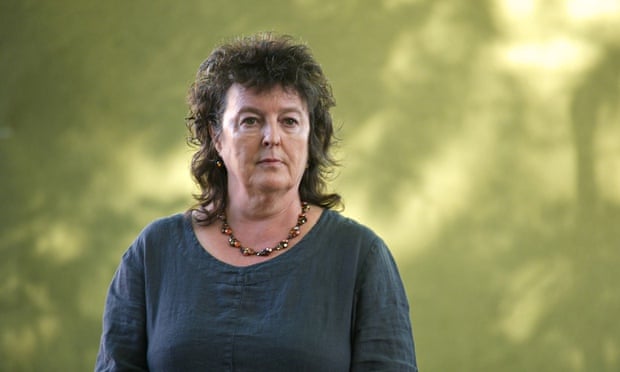Duffy’s 1999 collection The World’s Wife gives the women behind the scenes – from Mrs Midas to Queen Kong – a glorious and powerful voice. She is a poet of vast imagination

Sometimes people say to me, “why should I read a poem?” There are plenty of answers, from the profound – a poem is such an ancient means of communication that it feels like an evolutionary necessity – to the practical; a poem is like a shot of espresso – the fastest way to get a hit of mental and spiritual energy.
We could talk about poetry as a rope in a storm. Poetry as one continuous mantra of mental health. Poetry as the world’s biggest, longest-running workshop on how to love. Poetry as a conversation across time. Poetry as the acid-scrub of cliche.
We could say that the poem is a lie detector. That the poem is a way of thinking without losing the feeling. That a poem is a way of feeling without being too overwhelmed by feeling to think straight. That the poem is “the best words in the best order” (Coleridge). That the poem “keeps the heart awake to truth and beauty” (Coleridge again – who can resist those Romantics?). That the poem is an intervention: “The capacity to make change in existing conditions” (Muriel Rukeyser). That poetry, said Seamus Heaney, is “strong enough to help”.
Yes.
And pleasure.
Carol Ann Duffy has often spoken about poetry as an everyday event and not as a special occasion. She wants us to enjoy poetry, to have as much as we like, to be able to help ourselves to a good, fresh supply, to let poetry be as daily as talking – because poetry is talking. Words begin in the mouth before they hit the page. Speech is older than writing, and poetry is as old as speech. Poems are best spoken to get the full weight and taste of the words and the run of the lines. Difficult poems become easier when spoken.
Just as the body is shaped for movement, the mind is shaped for poetry.
More
We could talk about poetry as a rope in a storm. Poetry as one continuous mantra of mental health. Poetry as the world’s biggest, longest-running workshop on how to love. Poetry as a conversation across time. Poetry as the acid-scrub of cliche.
We could say that the poem is a lie detector. That the poem is a way of thinking without losing the feeling. That a poem is a way of feeling without being too overwhelmed by feeling to think straight. That the poem is “the best words in the best order” (Coleridge). That the poem “keeps the heart awake to truth and beauty” (Coleridge again – who can resist those Romantics?). That the poem is an intervention: “The capacity to make change in existing conditions” (Muriel Rukeyser). That poetry, said Seamus Heaney, is “strong enough to help”.
Yes.
And pleasure.
Carol Ann Duffy has often spoken about poetry as an everyday event and not as a special occasion. She wants us to enjoy poetry, to have as much as we like, to be able to help ourselves to a good, fresh supply, to let poetry be as daily as talking – because poetry is talking. Words begin in the mouth before they hit the page. Speech is older than writing, and poetry is as old as speech. Poems are best spoken to get the full weight and taste of the words and the run of the lines. Difficult poems become easier when spoken.
Just as the body is shaped for movement, the mind is shaped for poetry.
More
No comments:
Post a Comment